HOW DO YOU DEFINE GROWING OLD?
A NEW DEFINITION OF AGING

How do you define ‘growing old, otherwise known as ‘aging?’
Mr. Webster, your book of definitions needs fixing! When I look up definitions of aging and its synonyms, I find a pejorative shadow shaping how we see (or fail to see) ourselves as we age.
“Accumulating damage to macromolecules, cells, tissues, and organs with the passage of time” screams much louder than “becoming ripe, seasoned or mature.” No wonder we eschew growing older
I don’t need a dictionary to understand aging because I am an expert. That is, if experience counts for anything. I claim that authority because it is the one thing I’ve practiced more than anything else in life.
Aging since World War II, I haven’t stopped for even a moment. That’s a lot of practice!
When I was two, aging experts called aging ‘developing’ – a euphemism for aging according to a chart. At the age of ten, I heard the word ‘precocious’ – a fancy way of saying, “characterized by early development.”
It felt like people saw me as older than I was.
At thirteen, ‘developing’ had altogether different meanings as my body reshaped itself for adulthood. I am still ‘developing’ as I learn new things every day.
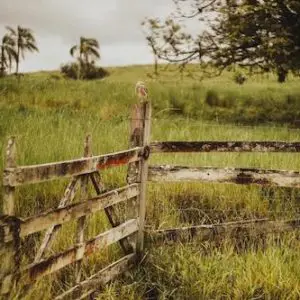
And my body has reshaped itself once more. And I wonder, can we also be precocious in old age? Why not?
The words we use characterize our values when it comes to aging. Here are several verbs that change radically the older we get.
Before twenty, people may describe us as ‘blossoming, flowering, developing.’ After forty, we hear we are ‘seasoned, ripened, maturing.’
But ‘withering, deteriorating, and decaying’ is better used to describe old fences around abandoned property than people in long term care. Why do we use this language?
When I started writing a blog, I thought of myself as a blossoming writer. Budding. Not yet in full bloom.
It’s possible others see me as ‘developing’. I hope my writing never decays, but just gathers wisdom as the years go on.
THE VOCABULARY OF GROWING OLDER
I ‘flowered’ as an adolescent yearning for sixteen candles on my cake.
I knew nothing about being sixteen, except it brought respect and privilege just by being older. This process also included unpleasant bodily changes with hormonal eruptions and emotional chaos.
But blowing out those candles symbolized a ‘coming of age’ that I longed for. Is there a teenager who doesn’t want to age to some point of perceived privilege?
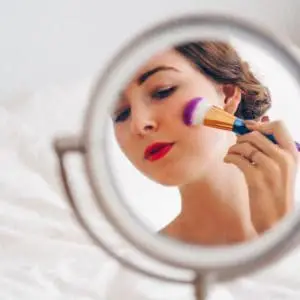
I am still deciding what I want to do when I grow up – a euphemism for aging that implies we are on a developmental spectrum with some magical point of arrival.
I can’t speak to that. It is one point I continue to move toward.
No accelerator gets us from sixteen to twenty-one to thirty-nine quickly. So we create the illusion that we have aged into where we want to be – or the illusion that we never left the age we want to remain.
Teenage girls buy make-up for the illusion that they are older. Boys may take up smoking, get a tattoo, and go to the gym to stay ‘buff.’ Then, they begin receiving black condolence cards for ‘getting old’ on their 39th birthday.
I have two sons who are cresting 50, and they think they are growing old.
Tell me what to tell them!
‘Old’ only changes how we do things. Not who we are.
Of course, they won’t listen to me. I’m their mother. But I have to ask, “Do I listen to myself?”
A MOUNTAIN OF MATURING
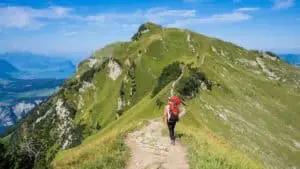
I have a lot of maturing to do. I visit older relatives and neighbors, some of whom are frail with age, and they are in the same maturation process.
Every living person, as I write this, is climbing a mountain called ‘aging’.
Many will make it to the top; some will not get past the treeline. The climb makes us stronger and opens vistas of foreign lands yet to visit – or conquer. It also brings
- Wrinkles
- Wisdom and perspective
- Memory changes
- Commitment in the face of adversity
- Arthritis and chronic disease
- Ability to hold things lightly and laugh at our mistakes
Both – And.
HOW DO WE GROW OLDER WITHOUT PAIN AND LOSS?
We don’t.
The same way that we didn’t get from five years old to six without skinned knees, nightmares, burying a goldfish, or in some cases, abuse and neglect.
I was in my twenties when I was first diagnosed with MS.
For several years I lost my ability to walk, to see well, and even to swallow. I spent time in nursing homes and received assistance in ‘activities of daily living.’
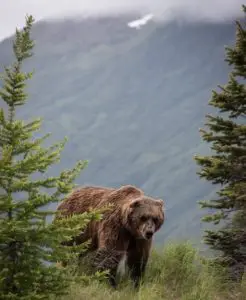 In many ways, I lived my old age early.
In many ways, I lived my old age early.
Michael lived in a foster home with seven other foster children and little personal attention beyond his basic needs.
Today he is retired from the practice of law and spends his days playing golf. He, too, lived his old age early.
Both Michael and I have been to the top of the mountain. We experienced the pain and loss of old age early.
I am here to tell you the songwriter was correct when he wrote, “The bear went over the mountain to see what he could see, and all that he could see was the other side of the mountain.”
Growing old may be a matter of ‘accumulating damage to cells over time,’ but the definition needs to be amended.
Aging is ‘accumulating joy and wisdom’ as well.
THE OTHER SIDE OF THE MOUNTAIN
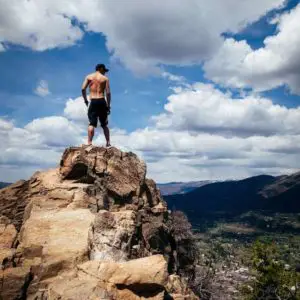 Now that I am getting a lot closer to seeing the other side of the mountain, I am thrilled at the vistas before me.
Now that I am getting a lot closer to seeing the other side of the mountain, I am thrilled at the vistas before me.
I make it a practice not to look down at ‘aging.’ I look out into the beauty of the universe.
Looking down from a lofty place can be scary.
Even dangerous as I see the number of ways I can fall, those behind me struggling to keep up, and boulders in my path, sheer cliffs I don’t know how to climb.
But when I look out, I see the glorious colors of the sunset, I can practically touch the stars overhead, and I hear my heart beat in celebration of getting this far.
When I look ahead, I am not looking at frailty, disease and death. I know they are there.
Like the mountain, they are not going anywhere.
I may find a pass through them or not. But one thing I know about mountain climbing is you don’t stop. You must use all your senses.
The air is thin and clear and requires you to be mindful of your breath. Bodies deserve to be tired. It has been a long climb!
I don’t know a mountain climber, though nervous and weary, who isn’t excited about reaching the summit. So am I. My backpack is ready.
OTHER ARTICLES ABOUT AGING YOU MAY ENJOY


Nancy Desmarais
Wonderful blog this week! I think you really nailed it and just the shot in the arm that I needed. Thanks for your efforts and insites week after week.
Helen Willey
I just turned 86 and Jamie 59 on 2/17/21. Jamie said, “I think it is the drop off point”?, what does that mean? Scary. My challengte is to live each day without the tools to live well. I will never catch up to computer, smart phones, apps that improve life?? so, what do you do? do the best your can with what you have where you are, for as long as you can. some wise man/woman said. Be well and happy.
Helen
Isabel Talens
Ardis, this blog is full of wisdom!!! Having entered my 50’s this year, I can relate to many things. As you so truly say, age brings the joy of experience, resilience and knowledge. And yes, age has not changed who I am! Brilliant post!
Heather Prudeaux
I am now 45 years old and no coming into a new enlightenment in regards to age. It doesn’t help when your kids are a reminder of aging. I regard it now as a new adventure in life. Thanks for the great post!
Ardis Mayo
Yes, Heather, a new adventure in life indeed. They are also aging! None of us will be the age we were yesterday and none of us are the age we will be tomorrow.